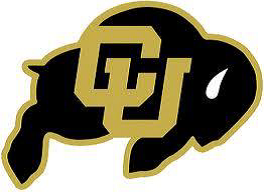Competition at the 2013 International Supercomputing Conference Student Cluster Challenge (or as I’m calling it, “The Second Battle of Leipzig”) will be the fiercest yet. Nine university teams from five continents are building, testing, and optimizing their own multi-node HPC clusters in preparation for the live face-off that will take place on the ISC’13 show floor in mid-June.
During the show, the students will be running HPCC (with a separate LINPACK), GROMACS, MILC, WRF, and two secret applications. The goal is to run the apps faster than the other teams without going over the 3KW power limit.
(For more details, click your mouse here and here.)
Representing the United States are the two most experienced student clustering teams in the league, Purdue and the University of Colorado Boulder. These teams were among the participants in the very first student cluster competition way back in 2007 at the Supercomputing Conference (SC) in Reno. Since then, one or both teams have competed in every single cluster competition possible – which is quite a feat. Let’s drill and see what these teams are bringing to Leipzig and ISC’13…
This will be the second time the Colorado Buffaloes (Team Buff) have made the trip to Germany for a cluster competition. Last year at ISC’12, they turned in a solid middle-of-the-road performance, scoring second-place finishes on some apps but not winning any of them outright. However, they were the only team that turned in a valid data set (solution) for each of the competition applications, which included the two ‘surprise’ apps sprung upon the teams by event organizers during the competition.
The best one-word description for Team Buff? “Steady”… or maybe “stable”… “tall” fits too. (Colorado fielded the only 7’ competitor in student cluster competition history.) Since their second appearance, this team hasn’t been thrown off stride by much of anything. (So what happened in their first outing? A power failure in Reno at SC’07 caused a system scramble that sucked up three or four hours of competition time and put them out of the running.)
After winning the LINPACK award in 2009, the Buffaloes have been shut out of the major awards. This year, with hardware provided by the HPC Advisory Council, they’re looking to mount a serious challenge and add a little something to their trophy case. (For the sake of accuracy, there aren’t any trophies given out at the ISC competition, and I don’t think the CU Computer Science Department even has a trophy case.)
The ISC’13 version of Team Buff is full of familiar faces. All six students have competed in at least one previous competition; three have battled it out in three cluster wars. Most of the team are majoring in Computer Science, with one outlier Electrical Engineering student. However, we don’t believe that unfamiliarity with the applications will be much of a factor for Team Buff. The experience they’ve gained from participating in so many previous cluster competitions, plus the book learning they get from Colorado’s deep HPC curriculum – which has been designed around the competition – gives them exposure to most, if not all, of the scientific applications on the competition menu at ISC’13.
Colorado has been to the big dance many times but has yet to dance in the bejeweled satin slippers of a Student Cluster Challenge champion. (I don’t think there is a set of “bejeweled slippers” or even “Bedazzled slippers” for the champion this year, but I’ll check with the organizers to make sure.) Could ISC’13 be the event where the Buffaloes finally break through and grab their first Overall win?
The Purdue Boilermakers are an example of a university that has fully embraced both the student cluster competition and the spirit behind these events. Only Colorado has participated in more contests. But what sets Purdue apart is how they’ve used the competition as a teaching tool.
These contests have inspired a year-round set of courses that focus on building, running, and optimizing HPC clusters. One current course, for example, tasks students with assembling their own small cluster, installing an o/s and application software, then running WRF with real weather data to develop their own forecasts. This class gives students a chance to get their hands dirty as they build a real-world HPC solution from scratch.
This year, the computer science department is teaching courses centered on HPC applications, parallelization, measuring and characterizing performance, and application optimization. They’ll be drilling down into a number of apps, looking at what they do, how they do it, and how to scale them.
These classes, along with other courses in the Purdue HPC curriculum, give students a deep foundation in both computing and widely used scientific applications. While this is a great training aid to prep Team Boilermaker for upcoming student cluster competitions, the real goal is to prepare them for rewarding careers in HPC or science.
In their application for ISC’13, Purdue pointed out that a large number of their former Team Boilermaker compatriots are now working in HPC at various academic and research institutions. Former team members have also submitted academic papers on topics associated with their experiences in the student cluster competitions.
This year’s ISC’13 Boilermaker team, jointly sponsored by HP and Intel, looks to be essentially the same team they sent to SC’12 in Salt Lake City last November. While we don’t know for sure what they’re bringing in terms of gear, Purdue’s recent systems have tended to be standard two-socket Intel-fueled boxes. Back in the day they were a bit more adventuresome, going with AMD in ’07 and trying an unconventional SiCortex MIPs-driven box in ’08. But since then, they’ve stuck with Intel-only designs, eschewing GPUs, FPGA, and the fancy liquid cooling that some teams have recently utilized.
Team Boilermaker has finished in the middle of the pack in recent competitions, but snared the Green Award (most flops/watt) at SC’09 in Portland. They’re another one of those quiet, steady teams that never seems to get flustered or have any drama. At 4,459 air miles, this will be the longest competition trek in Team Boilermaker history. They’ll be separated from all they know and love in West Lafayette. No opportunity to visit Harry’s Chocolate Shop (where there isn’t any chocolate) or get one of America’s best burgers at Indiana’s oldest drive-in, the venerable Triple XXX Family Restaurant. Team Boilermaker will definitely be out of their element in Leipzig; we’ll see how it affects their performance in the competition.
Posted In: Latest News, ISC 2013 Leipzig
Tagged: HPC, Dell, Purdue University, University of Colorado, ISC 2013, Student Cluster Challenge, Meet the teams



Pingback: U.S. Sending Two Veteran Teams to ISC’13 Klusterkampf | insideHPC.com